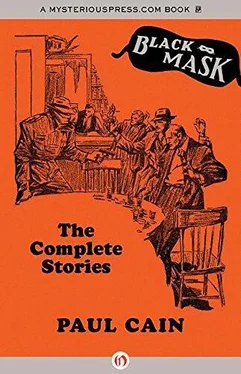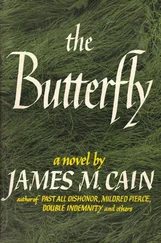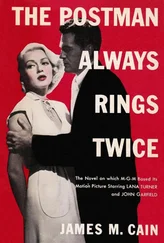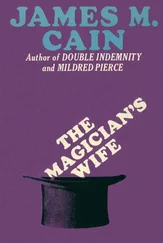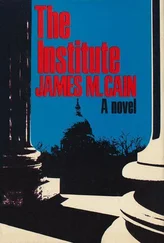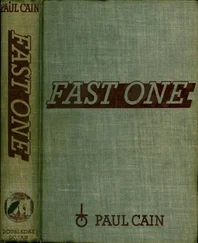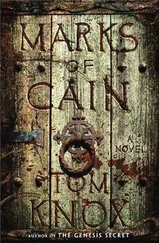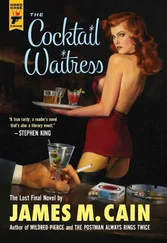“Here are the originals of the photographs and a couple letters. You can burn ’em up and then defy the Coast Guardian people to produce them — or you can have ’em doctored so they’ll look like phoneys.”
Larson looked down at the envelope. He asked: “Who are the Coast Guardian people?”
Kells smiled, said: “Me — I’m them.”
Larson slit the envelope, glanced at its contents. Then he put the envelope in the top drawer of his desk and stood up. Kells and Beery stood up too. Larson reached across the desk and shook hands with them. They went out of the office, downstairs.
Kells said: “It looks like MacAlmon hasn’t squawked — maybe he got away with the junk after all.”
They passed the Reporters’ Room and Beery said: “Wait a minute — maybe I can find out.” He went in and telephoned and came out, shook his head. “Nothing yet.”
Their cab was across the street. Kells looked up First Street to where the cab that Granquist and Borg were in had been parked on the other side of Hill Street. It had gone.
He stood there a moment looking up First, then he said, “Come on,” and they crossed the street. “What happened to the other cab?” Kells asked the driver.
The driver shook his head. “I don’t know. It was there a minute ago, an’ then I looked up an’ it was gone.”
Kells got into the cab, stared through the open door at Beery. His face was hard and white. “We were going to an auto-rental joint over on Los Angeles Street and hire a car and driver to take us down to San Bernardino. But she didn’t know the address — they couldn’t have gone over there.”
Beery said: “Maybe they were in a ‘no parking’ zone and had to go around the block.”
A short gray-haired man came out on the steps of the Police Station and called across to Beery: “Telephone, Shep — says it’s important.”
Beery ran across the street and Kells got out of the cab and followed as fast as he could. That wasn’t very fast; his leg was hurting pretty badly. When he went into the Reporters’ Room, Beery was standing at a telephone, jiggling the hook up and down savagely, yelling at the operator to trace the call. Then he said: “All right — hurry it. This is the Police Station,” hung up and looked at Kells.
The man who had called Beery to the phone glanced at them and then got up and went out into the hall.
They looked at one another silently for a moment and Beery sat down on one of the little desks. He said: “They’ve got her.”
“Who?”
“I don’t know — Crotti and MacAlmon I guess. You’re supposed to do business with MacAlmon...”
“What do you mean, business?” Kells was standing by one of the windows, his mouth curved in a hard and mirthless grin.
“They want their hundred and fifteen, and they want it quick. I don’t know who I talked to — I couldn’t place the voice. He said the price goes up twenty-five grand a day — and they’ll send you one of her teeth every day, just to remind you...”
Kells laughed. He looked out the window and laughed without moving his head, and the sound was cold and dry and rattling. He said: “To hell with it. Where did those saps get the idea that she means that much to me? All she’s given me is a lot of grief — I don’t want any part of her.”
Beery sat staring at Kells with a very faint smile on his lips.
“I’m in the clear — I’ve got mine. I’m going.” Kells went unsteadily towards the door and then he turned and held out his hand towards Beery. Beery stood up and took his hand and shook it gravely.
Kells said: “Why, goddamn it, Shep — she’s double-crossed me a half dozen times. How do I know this isn’t another one of those trick Scandinavian gags of hers? She was Crotti’s gal in the first place...”
Beery nodded slowly. He said: “Sure.”
Kells turned again towards the door. He took two or three steps and then he turned again and limped wearily over to one of the desks, sat down. He sat there for a little while staring into space. Then he said: “See if you can get MacAlmon, Shep.” Beery smiled, picked up the phone.
There were six men in MacAlmon’s big living room at the Villa Dora. Crotti sat sidewise at a desk against one wall, leaned with one elbow on the big pink blotter that covered the desk. His thick red lower lip was thrust out, curved up at the corners in a fixed and meaningless smile.
There were two men sitting in straightbacked chairs on the other side of the room. One was Max Hesse. He was fat, ruddy-cheeked, blond; his suit looked like it might have been cut out of a horse blanket. The other man was dark and slight. He fidgeted a great deal. He had been introduced simply as Carl.
Kells sat in one of the big armchairs near the central table and Beery sat on the edge of the table.
MacAlmon paced from the door to the table, back again.
Kells said: “Certainly not. You haven’t got Granquist here — I haven’t got the dough. Turn her over to me in the open and without any haggling and you can send anyone you want to a spot I’ll give them, with an order from me. They can call you with an okay when they get the money. Then we’ll walk.”
Crotti moved his fixed smile from MacAlmon to Kells. He said: “You are very careful.” The soft slurred impediment in his speech made it sound like a whisper.
Kells nodded without speaking, without looking at him.
Hesse laughed, a high dry cackle.
MacAlmon glanced at Crotti then stopped his pacing, spoke to Kells: “She is here!” He raised his eyes to the balcony that ran across half of one side of the room. He called: “Shorty.”
One of the three doors on the balcony opened and a squat overdressed Filipino came out and leaned on the balustrade. He tipped his bright green velour hat to the back of his head, stared coldly, expressionlessly at MacAlmon.
MacAlmon said: “Bring her down.”
The Filipino went back into the room and then came into the doorway with Granquist.
Her hair was loose, hung in straw-colored and angular disorder over her shoulders. Her eyes were wide, unseeing. A white silk handkerchief had been stuffed into her mouth, and her hands were knotted behind her back.
Kells said: “Take that goddamned gag out of her mouth.” He spoke almost without moving his lips.
Beery stood up.
“I am very sorry.” Crotti spoke sidewise to Kells. “She raised a lot of hell...” He nodded to the Filipino.
The Filipino reached up delicately and flicked the handkerchief out of her mouth by one corner. She caught her breath sharply; her eyes rolled up whitely for a second and then she closed them and swayed sideways with one hip against the balustrade.
Kells stood up slowly.
Crotti said: “Sit down.”
Granquist opened her eyes and turned her head slowly and looked down at Kells. She opened her mouth a little and tried to speak. Then the Filipino took her arm and guided her down the stair, to a low chair between Kells and Crotti. She sank down into it, and the Filipino took a small knife out of his pocket and reached behind her and cut the twisted cord that held her hands. She leaned back and put her hands up to her face.
MacAlmon walked to the door and back.
Crotti asked: “How do you feel, sister?”
Granquist didn’t move or show in any way that she had heard.
Kells sat down in the big chair, and Beery sat down again on the edge of the table.
Kells took a thin black card case out of his pocket and took out a card and spoke over his shoulder to Beery: “Got a pencil?”
MacAlmon had come back from the door and was standing near Kells. He took a silver pencil out of his vest pocket, handed it to him. Hesse got up and went out into the kitchen and came back with a glass of water and put it down on the arm of Granquist’s chair. He tapped her shoulder, smiled down at her. She took her hands away from her face for a moment and stared blankly up at him, then she put her hands back over her eyes.
Читать дальше
